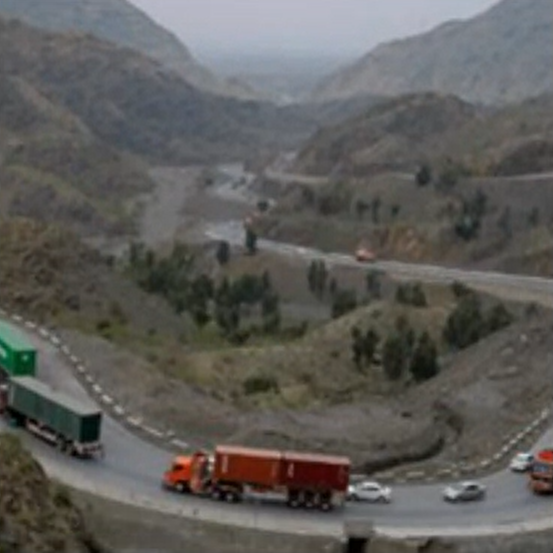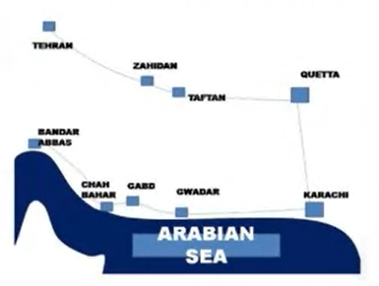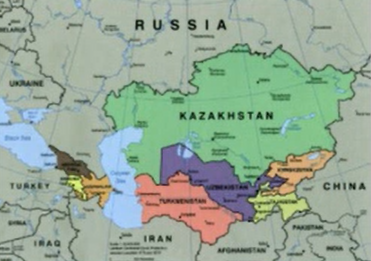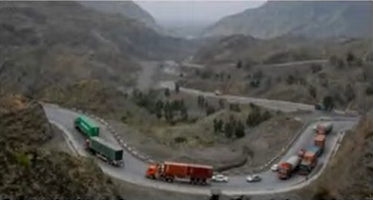Regional Trade Opportunities For Malaysia International Trade Under International Agreement & Trade Through Pakistan

Pakistan has the longest border of 2,400 km with its landlocked neighbor Afghanistan which is a country of 34 million people and also a gateway into 75 million population regional of Central Asian Republics(Turkmenistan, Uzbekistan, Tajikistan, Kazakhstan).
Pakistan is Afghanistan largest trading partner, while Afghanistan is Pakistan's second largest export market. Imports into Afghanistan of some products such as cooking oil or medicines from Russia and Central Asian countries, Indonesia, and Malaysia have a reputation of being of high quality.
Over 28% of International Transit Trade with Afghanistan is routed through Pakistan whichis equivalent to more than 125,000 TEUS commercial value US$ 5.2 billion. Those commercial products include textile products, electronic and semi-conductor devices, palm oils and vegetable oils based value added products, sugar, rubber, tea and steel.
Reverse transit i.e.exports out of Afghanistan transiting through Pakistan includes over 6,200 TEUsvalued ~ US$ 244 million. Those commercial exports include fruits (figs, pistachio, almond, apricot),
The Afghan Transit Trade Agreement (ATTA) came into force on 2nd March 1965. Pakistan granted transit facility to Afghanistan in pursuance of UN Convention on law of Sea (1958). Pakistan allows movement of transit cargo through Karachi Ports and Port Qasim through identified two transit routes
(i) Torkham (ii) Chaman. Originally ATTA covered the movement of Afghan goods through Pakistan by rail only. Major changes in global arena over the years led to various upgrades particularly the changes that have been brought about by automation & containerized handling of cargo.
Afghanistan-Pakistan TransitTrade Agreement (APTTA), 2010 became fully operationalized from June 2011. Under new agreement movement of transit cargo through Karachi Ports, Port Qasim & Gwadar port is permitted through Licensed BondedCarriers. Number of border crossing points have increased to include Chaman, Torkham, Wagah, Sost and Ghulam Khan. APTTA allows commercial cargo one-way movement from Afghanistan via Torkham and Chaman to India through Wagha.
APTTA allows use of Afghan territory for trade between Pakistan and Central Asian countries. Afghanistan Pakistan Transit Coordination Authority (APTTCA) has been established for monitoring, facilitating and effective implementation of Agreement. Financial Guarantee is secured to cover the impact of duty/taxes in order to create deterrence against pilferage. Goods transiting through Pakistan shall be stored in sealedcontainers which meet international specifications. Customs officials may examine the contents of up to 5% containers at the point of entry into Pakistan.
TIR 2018: TIR is a French acronym for Transports International Routiers which means International Road Transport. In practice it is an international transit system for goods carried by road across the borders of countries that have ratified the TIR Convention, while offering a high level of security. TIR system is based on 6 essential principles;
1. Secure vehicles or containers,
2. International chain of guarantee,
3. TIR Carnet,
4. Mutual recognition of Customs Controls,
5. Controlled access,
6. IT TIR Risk Management tools which are (Safe TIR and TIR EPD).
There are 6 Border Customs TIR stations and 15 Inland Customs Stations for TIR Operations in Pakistan.
| Border Customs Stations For TIR | Location / Province/State in Pakistan |
| Karachi | (Karachi (Port City) Sindh) |
| Gwader | (Gwadar (Port City near Iran Border) Balochistan) |
| Taftan | (Pak-Iran Border near Balochistan) |
| Chaman | (Pak-Afghan Border near Balochistan) |
| Torkham | (Pak-Afghan Border Khyber Agency/KP) |
| Sost | (Pak-China Border, Gilgit Baltistan) |
| Inland Customs Stations for TIR Operations | Location/Province/State |
| NLC Container Terminal | MCC-Exports Karachi |
| Qasim Freight Station (QFS) | MCC-Exports, Port Qasim, Karachi |
| NLC Container Terminal | MCC-Appraisement East, Karachi |
| Bay West Terminal | MCC-Appraisement West, Karachi |
| NLC Dry Port | Hyderabad, Sindh |
| Railway Dry Port | Quetta, Balochistan |
| NLC Dry Port | Quetta, Balochistan |
| Multan Dry Port | Multan Punjab |
| Sambrial Dry Port | Sialkot, Punjab |
| Lahore Dry Pot | Mughalpura Lahore, Punjab |
| Faisalabad Dry Port | Faisalabad, Punjab |
| NLC dry Port Thokar | Thokar NiazBeg, Punjab |
| Railway Dry Port Premnagar | Lahore, Punjab |
| Railway Dry Port | Peshawar, KP |
| Margalla Railway Dry Port | Islamabad, Islamabad Capital Territory |



